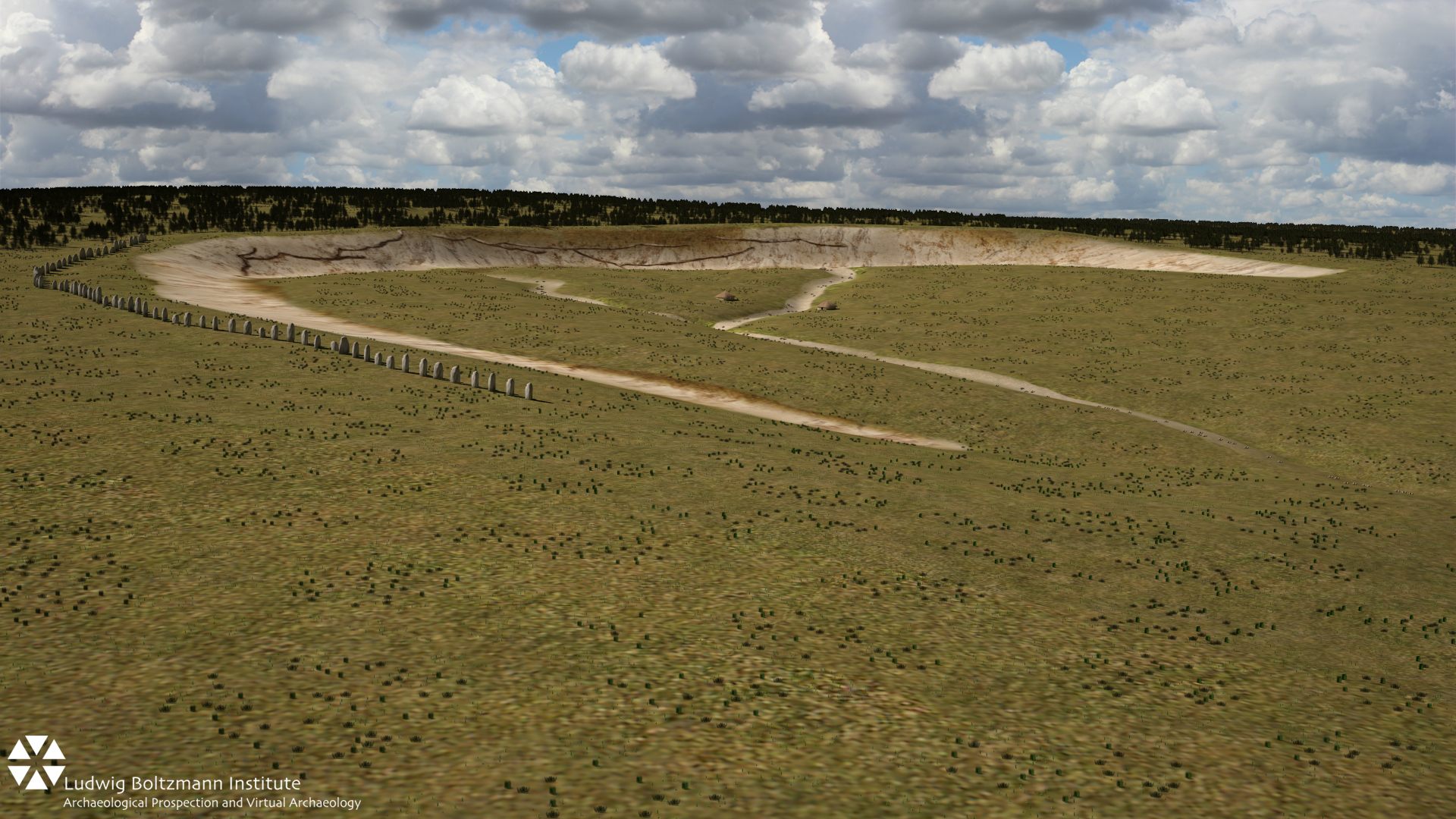FOUND: A Super-Sized Stonehenge

How the stones might have looked before they were buried (Image: LBI ArchPro, Juan Torrejón Valdelomar, Joachim Brandtner)
Just under two miles from Stonehenge, there’s another large monument called Durrington Walls. It’s a huge circle of mounded earth, about a mile in circumference, and for years it was thought to have been made about the same time as Stonehenge.
But now a team of archaeologists re-examining the earth around the famous monument have found evidence for stones at Durrington Walls, too—90 of them, 15 feet feet tall, at least as old, if not older, than Stonehenge itself.
For the past few years, the Stonehenge Hidden Landscapes Project has been scanning the land around Stonehenge in search of more information about the context in which the ring of stones stood. They used advanced scanning technology to examine the ground without excavating, and when they looked at Durrington Walls, they found about 30 intact stones buried under the mound, as well as many more stones that are broken apart or deep pits in which stones once stood, around 4,500 years ago.
Like Stonehenge, Durrington Walls aligns with the solstice. The stones are all in a row along the southern edge of the semi-circle. It’s a new clue that Stonehenge was not a lonely monument on a hilltop; it existed in a larger realm of stone monuments and rituals that we’re just starting to learn about.
Bonus finds: a Stravinsky score, Ice Age fossils
Every day, we highlight one newly lost or found object, curiosity or wonder. Discover something unusual or amazing? Tell us about it! Send your finds to sarah.laskow@atlasobscura.com.








Follow us on Twitter to get the latest on the world's hidden wonders.
Like us on Facebook to get the latest on the world's hidden wonders.
Follow us on Twitter Like us on Facebook